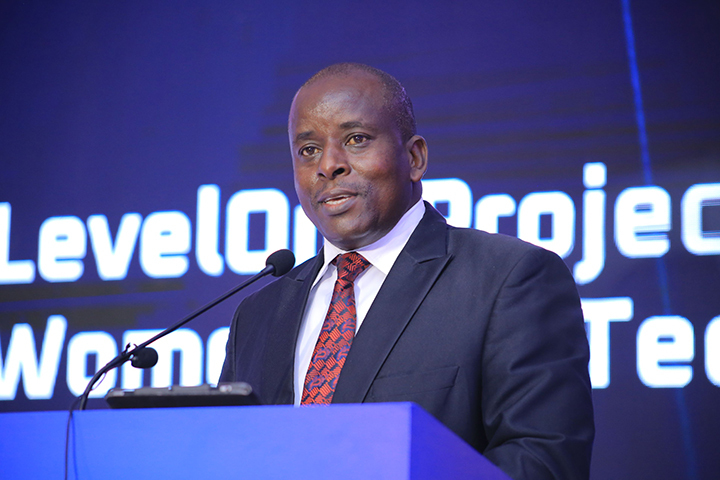Experts call for increased involvement of Women in Fintech
Over 70% of informal cross border women traders need access to affordable fintech solutions that can catalyse their businesses.
FINTECHS BUSINESS
Experts have called for increased involvement of women in the conceptualisation, design, development and marketing of financial technology solutions for increased profitability.
Damali Ssali, a trade development expert, said increasing the number of women in financial technology companies (fintechs) space, especially in management, is not only right but also profitable.
"A 2015 McKinsey study indicated that companies that had a balanced and inclusive workforce were 33% more likely to have better than average profits. A Boston Consulting Group study also indicated that companies with a balanced and inclusive senior management leadership were more innovative and had 19% higher revenues than their competitors," Ssali said.
She was speaking during the Women in Fintech summit at Sheraton Kampala Hotel on Friday. The event was organised by HiPipo under the Include EveryOne programme, in partnership with ID8, Crosslake Tech, ModusBox, Mojaloop Foundation and the Level One Project.
Ssali said involving women in product conceptualisation, design and development will open doors to tap into the underserved market segment of Ugandan women entrepreneurs by innovating solutions that meet their needs.
"Over 70% of informal cross border women traders need access to affordable fintech solutions that can catalyse their businesses. Bank of Uganda estimated informal cross-border trade at $595m in 2018. That segment alone offers a lucrative and ready market for innovative fintech solutions which can only be designed and developed through greater involvement of women in fintechs," she said.
Mismatch
Ssali said more than half of women are unhappy with the available fintech solutions and products because they were never developed with gender-sensitive lens.
"If fintechs in Uganda are going to bring to the market solutions that are representative of a Ugandan population, they must increase the number of women who are involved in the development from the current 10% to 50%," she said.
The Women in Payments founder and chief executive officer, Eng. Kristy Duncan alluded to the need for increased women participation to spur innovation and increase uptake of fintech products.
"Without including female innovators, we are only innovating for half of the population. This is an unfortunate waste of a big resource. We all know that women make almost threequarters of day-to-day purchase decisions. They understand customer experience for the female users more than men," she said.

Organised under the theme, Fostering leadership, innovation and championing women empowerment, the summit was the culmination of a week-long hackathon that sought to generate interoperable financial inclusion solutions for and by women.
The HiPipo chief operations officer, Nicholas Kalungi, said while 30 teams applied to take part in the hackathon, only 15 were shortlisted. The weeklong intense training saw them conceptualise and develop different financial inclusion products with special focus on women in areas such as payments, savings, lending, e-commerce, e-education and e-agriculture.
The Kanzu Code Ladies team, which developed an online bank to ease access to finance for local women, emerged the grand winner, taking home $2,000 (about sh7.3m) to take their solution on the market.
The other top four - E-Moments, Anchors, Affinity and Hack Girls, will also share $2,000 (sh7.3m) among themselves.
The HiPipo chief executive officer, Innocent Kawooya, applauded all participants and pledged to support them nurture their ideas and actualise them into products ready for the market.
Saving
Mojaloop Foundation director Adama Diallo said there was need for faster adoption of interoperable digital solutions.
She said it will pave the way to more inclusion for African countries, where millions are still financially excluded.
Diallo also said adopting interoperable solutions - which provide open source switching platform for creating digital payment platforms that connect all customers, merchants, banks and other financial providers in an ecosystem - could save African governments close to $1b (sh3.7 trillion) annually.
"Using the Mojaloop software platform would allow countries to innovate for Africa and beyond. With many countries contributing to and using the same system, the benefits could be scaled to benefit everyone and governments would save close to $1b annually by reducing leakage in public expenditure and tax revenues. That money could be repurposed towards investment in other critical areas," she said.
Remove roadblocks
ICT minister Judith Nabakooba said there was need to develop and implement strategies that promote the access and usage of ICT by women.
She said this can be achieved through implementing interventions that remove roadblocks to access and usage of ICT, so as to reduce the digital divide.
Nabakooba however, challenged stakeholders to promote responsible and safe ICT use while maximising the intended benefits.
"There is need to be cognizant of the dangers and risks brought about by digitisation that include cybercrimes such as identity theft and online bullying, which sometimes culminate into rape, kidnap or even murder," she said.
The state minister for public service, Eng. David Karubanga, applauded the organisers for thinking about women as the world grapples to reduce the dominance of men across sectors. He pledged government support in ensuring that more women play a major role in financial inclusion.